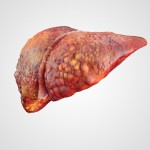Depression and stress levels increase risk of liver disease, hepatitis
 Depression, anxiety and stress levels have been shown to increase the risk of death by liver disease. The findings come from the University of Edinburgh, and it’s the first study to identify a possible link between psychological distress and death resulting from various forms of liver disease.
Depression, anxiety and stress levels have been shown to increase the risk of death by liver disease. The findings come from the University of Edinburgh, and it’s the first study to identify a possible link between psychological distress and death resulting from various forms of liver disease.
The researchers are still unsure as to the biological link between psychological distress and liver disease. Previous research showed a strong link between mental distress and cardiovascular disease.
Furthermore, risk factors of cardiovascular disease, such as obesity and high blood pressure, are also risk factors for liver disease.
Researchers examined responses from over 165,000 people who answered questionnaires capturing psychological distress. These participants were then tracked over the course of 10 years with a strong focus on the cause of any deaths.
Those who scored high with symptoms of psychological stress were more likely to die from liver disease compared to those with lower scores.
Research lead, Dr. Tom Russ, said, “This study provides further evidence for the important links between mind and body, and of the damaging effects psychological distress can have on physical wellbeing. While we are not able to confirm direct cause and effect, this study does provide evidence that requires further consideration in future studies.”
Cortisol, stress hormone and fatty liver
 In other research it was found that cortisol – the stress hormone – could increase the risk of a fatty liver. The study, published in Clinical Endocrinology, found a link between cortisol levels in men and fatty liver disease. Fatty liver disease occurs when too much fat forms around or in the liver, thus negatively affecting the liver’s function.
In other research it was found that cortisol – the stress hormone – could increase the risk of a fatty liver. The study, published in Clinical Endocrinology, found a link between cortisol levels in men and fatty liver disease. Fatty liver disease occurs when too much fat forms around or in the liver, thus negatively affecting the liver’s function.
Researchers found those with non-alcoholic fatty liver disease (NAFLD) had an overproduction of cortisol. Researchers believe that overproduction of cortisol is what contributes to the excess fat in the liver as cortisol is known to promote fat deposits in the liver.
Excessive cortisol is not only harmful for the liver, but it can wreak havoc on your body and overall health. Researchers suggest that if high cortisol levels can contribute to fatty liver, lowering cortisol can diminish fatty liver.
Stress and chronic hepatitis
Numerous studies also point to the association between stress, more specifically psychosocial stress, and the development of viral hepatitis. In one study researchers found a link between psychosocial stress and the severity of chronic hepatitis C. In individuals with low self control, object dependence of loss, unfulfilled need for acceptance and altruisms (Type 1 personality), researchers found more susceptibility to psychosocial stress, which was linked to hepatitis C severity.
Other studies have found that psychosocial stress affects antibody response after a hepatitis B vaccination. One survey revealed that those with higher responses that indicated stress also had weakened immune responses when they received the vaccination.
Symptoms that your liver is stressed
If you’re concerned about your liver health, look out for these signs as indicators that you have a stressed liver.
- There are changes in your skin color
- You experience digestive problems
- You feel aches and pains
- You’re fatigued, even after you sleep properly or rest
- Your urine is darker
- You experience mood swings
- Other symptoms that can occur are blurred vision, ringing in the ears, dizziness, insomnia, hormonal imbalances, lower sex drive, spider veins, unintentional weight loss
Tips to reduce stress, depression and have a healthy liver
If you want to protect your liver, and your health overall, it’s a good idea to reduce your level of stress. Here are some effective tips to reduce stress, depression and promote a healthy liver.
 Exercise – exercise has been shown not only to reduce stress, but promote a happier mood
Exercise – exercise has been shown not only to reduce stress, but promote a happier mood- Balance rest and activity
- Sleep
- Positive thinking
- Stress reduction
- Avoid substance use
- Laughter and recreation
- Good nutrition
- Maintain a healthy weight
- Look for warnings of toxicity on medication labels
- Practice good hygiene to prevent infection
- Keep hydrated to help flush out toxins
- Don’t smoke or quit smoking
- Manage underlying medical conditions like diabetes, hypertension or cholesterol
- Get vaccinated for hepatitis
- Be mindful of medication overuse
- Minimize your salt intake
- Reduce your alcohol consumption
Why the air your breathe could be hurting your liver
It’s hard to pinpoint when our liver is sick, which is why it’s so important to always pay attention to your body and recognize the signs. Symptoms of an unwell liver include loss of appetite, weight loss, yellowing of the skin and bruising, just to name a few. Because many of the symptoms associated with a sick liver can be confused with other ailments, it’s often overlooked as the root cause. Continue reading…
-
Losing Belly Fat: Understand A Working Process
Who wants belly fat? The worst part about it is that it seems to want
-
7 Power Packed Tips To Help You Lose Weight Gain Optimal Health
Did you know that what youre eating could be making your body toxic? I
-
Easy Weight Loss Tips – Free Weight Loss Program Reveals 10 Steps To Easy Weight Loss Today
Millions of people are frequently looking for easy weight loss tips an
-
Simple Ways to Detoxify Your Body and Reclaim Your Health and Vitality
Detox, short for detoxification, is the purification of the body by
-
The Ups And Downs Of Hypnosis For Weight Loss
When in the world of weight gain, the pr
-
Avoid Holiday Weight Gain By Eating Pizza
Avoid holiday weight gain by eating.. PI
- DON'T MISS
- Lose Belly Fat To Look Better And Live Longer
- You have to be Mindful along with your Diet program if you include an Endomorph Entire body
- What is the LA weight loss diet?
- Your ‘Wheat Belly’ Could Be Making You Bloated And Anxious
- Do You Really Mean It? How Can I Lose My Belly Fat?
- Losing Weight Is Something That Can Be Carried Out Without Starving And The Cheat Your Way Thin Diet Can Help
- How to Lose Weight in a Safe and Healthy way
- Weight loss mantra: Its all in your mind
- Even moderate weight loss for obesity improves heart function
- Take Control of Your Weight with the Alli Weight Loss Pill




